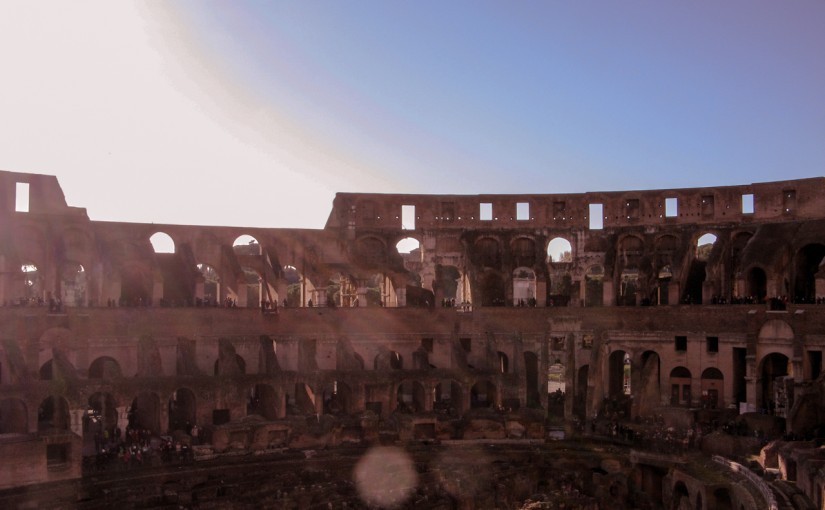On Athletic High
Gladiators were trained professional. They had training schools, and there were huge amount of money and effort involved in gladiatorial games. In a sense, they are like modern day soccer (or football, correctly called) players. Both play in big arenas; both have limited time period for professional lives (either being slain or retired); and both perform for entertainment. The key difference, I think, is that the former is more cruel and involves blood spilling and finishing your opponent for good, whereas the latter is comparatively more civilized and sustainable way of competing. But perhaps I am judging the ancient activity with the wrong morality; perhaps in Roman times, slaying in Colosseum is a perfect sport that affords the highest level of entertainment. If the core of human nature is forged over million years of evolution, 2000 years of modern history is too brief to make any significant change to that somewhat raw and savage core, and maybe some part of the human nature has and will always have something to do with blood. And yet if modern day football have indeed some roots in the ancient gladiator games, its existence and popularity tell us that the expression of the same core human nature can be disciplined and can grow into more refined forms, while still keeping adrenaline flowing.
On Sportsmanship
But sports are much more than just adrenaline, or athletic high. There are discipline in training, team work in playing, and fairness in competing. It is often said that one can tell a person’s character directly from the way he plays soccer, such as whether he plays for himself or for the team, whether he plays for the sole purpose of winning or for the love of the game, and whether he understands the subtle but crucial difference between sportsmanship and gamesmanship.
On Match Fitness
Often hear that in order to recover from injury or long vacation, a soccer player need to train for an extended period of time until he reaches match fitness before he can play in competitive games. The idea of match fitness goes beyond just being fit or without illness. It perhaps involves a certain level of fatigue from disciplined training that builds endurance. If match fitness represents a higher form of physical fitness, there could be analogous ideas in the intellectual, emotional, and spiritual domains. The sharpness of the brain and the strength of the heart may also need constant training in order to achieve higher and higher levels of fitness.
On Sports as An Art Form
A while ago, I read the following quote in the Guardian about the 2014 Bayern Munich team:
“It’s a football that the Bundesliga has never experienced in 50 years; so delicate and precise, so playful and determined, so sophisticated and improved, so inspiring and exciting. No one has come this close to art with football in this land as Pep Guardiola.”
Strategies, tactics, and game plans aside, once a team has the physical skills and mental strength, what comes out of every game at the highest level of competition can be beauty and elegance. This blending of sport and art blurs the boundary of the savage and the refined and is perhaps the finest expression of human nature.
